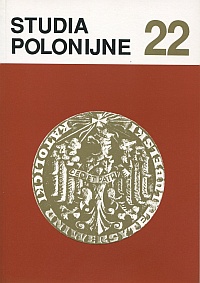The Church Towards Migration as One of the “Signs of Time”
Main Article Content
Abstract
The "signs of time” is a phenomenon which due to its propagation and frequency, characterize a given epoch. By means of the signs, contemporary people express their needs and aspirations. The phenomenon of worldwide migrations at the turn of the twentieth and twentyfirst centuries on the international scale reached a universal character. International migrations point to often painful needs of mankind, who apart from great achievements, especially technical, were plagued with wars, conflicts, ethnic or religious persecutions. Eventually, there were ever increasing disproportions between the pace of development as regards political freedom o f the individual and the pace of abolishing inequalities in the civilizational development o f particular countries. This situation places migrations in the rank of the “signs of time”, towards which, among other things, the Catholic Church was called to take a stand. Vatican Council II and the teaching of successive popes clearly point out that people were well aware of this problem and took concrete measures, e.g. establishment of the Papal Commission for the Pastoral Care of Migrants and Tourists, or the establishment of the Day of Migrant. The Church strongly reacts to the phenomenon of migration, showing her care about proper pastoral care for migrants in ethnic personal parishes, pastoral missions (Missio cum cura animarum), or the establishment of the Day of Migrant.

